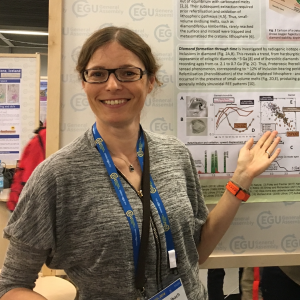
Reviewing with benefits
Write reviews that you would like to receive as an author

When asked whether I would write a short piece on the art of reviewing, I hesitated…… It’s not that I have not reviewed a tonne (gasp – a non-SI unit!) of manuscripts. Moreover, as one editor of Chemical Geology (which is affiliated with the European Association of Geochemistry), I am now actively trying to hook up manuscripts with an optimal set of reviewers, which requires some left swipes before a promising match is found. The reason is that I realised that my approach as reviewer has been simple and intuitive. I have endeavoured to write the type of reviews that I would like to receive: thorough, insightful, fair, polite and constructive. This seems self-evident. It is also good to highlight the positive and find words of encouragement, especially for early-career researchers and if the list of issues is long. Less obvious might be that journals have specific scopes (e.g., regarding novelty and broadness of the implications) that we, as reviewers, should also consider. There are great online resources for getting started on the art of the review. Most publishers will provide them on their sites as “Guidelines for Reviewers” or similar, and occasionally journals publish a piece about the philosophy of reviewing.
Constructive reviewing to help authors
In my view (therefore debatable), unless data quality is compromised, in which case rejection is the logical consequence, the task of the reviewer (and editor!) is to help the authors turn their manuscript into the most informative, balanced and authoritative piece it can be. This implies that you are not doing authors a favour by being “nice”, rather than trying your best to find points for improvement, be that clarity, brevity, presentation or flow. Manuscripts that are so impeccably illustrated, written and argued that there is little left for reviewers to do are the exception. Although getting a manuscript back with requests for major revisions always seems daunting (and perhaps a little annoying) at first, as author I have never gone through the process, however painful, without finding that this really did significantly improve the manuscript, and without being sincerely grateful for the input received.

Give back by accepting review requests

One thing to consider is that, because as authors we need reviews to get our manuscripts published in reputable journals, we should give back by accepting review requests. But preparing reviews is not just an onus. Doing so can alert us to new methodologies, applications and avenues of fruitful research we were not previously aware of or only vaguely so, in particular if we dare to venture to the fringes of our comfort zones and review manuscripts that are not exactly within our core expertise. The opportunity to have a positive impact on the work that is published, and getting the deserved recognition for it (be that in the acknowledgments section of the paper or in the yearly reviewer recognition some journals put out) is another rewarding aspect. I have also learned a lot from the replies/rebuttals of authors to my comments (and to those of other reviewers), which can be accessed on some journal sites, because reviewer comments are not invariably insightful, accurate or incontrovertible. Ideally, this amounts to a friendly back-and-forth between authors and reviewers, with mutual benefits.

